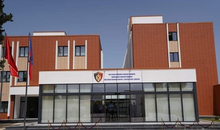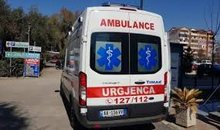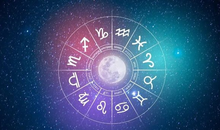
 Flash News
Flash News
Korça/ 40-year-old man jumps from fifth floor balcony, in critical condition
Croatia restores compulsory military service
Illegal constructions in Theth, Manja demands disciplinary proceedings against prosecutor Elsa Gjeli
Details from the murder of Renis Dobra, the perpetrators came with 2 Range Rover cars from Rrëshen
The Supreme Court left him in prison, Meta addresses the 'Constitution'
Pink October/ Breast Cancer Awareness Month! What you need to know

October is designated as Breast Cancer Awareness Month worldwide, to raise awareness and support for breast cancer awareness, early detection, treatment, and care.
It is organized annually and aims to spread information about breast health, as well as to raise awareness of the prevention and early detection of breast cancer among women and girls around the world.
As everywhere else in the world, in Albania there have been no shortage of awareness campaigns to increase the awareness of women and girls to carry out checks. Health specialists recommend regular visits as this serves to identify early stages of breast cancer.
What is breast cancer?
Breast cancer is a disease where breast cells grow out of control. Breast cancer can start in different parts of the breast and can spread outside of it through blood vessels and lymphatic vessels, thus giving metastases. Both sexes, both women and men can be affected by breast cancer, although this cancer is much more common in women. Some women are at higher risk for breast cancer than others because of their medical, personal, or family history, or because of certain genetic changes.
How common is breast cancer?
Based on the data of the International Agency for Research on Cancer (GLOBOCAN), which calculates an assessment of the real situation in every country of the world, breast cancer has the highest incidence among the types of cancer that affect women anywhere in the world. Most breast cancer deaths occur in low- and middle-income countries, where most women with breast cancer are diagnosed at late stages.
Which women are at risk for breast cancer?
Breast cancer affects all women, but the risk increases with age. It generally affects people over 50 years old, but breast cancer can also appear at very young ages. Studies have shown that the risk of breast cancer is the result of a combination of factors.
Some of the risk factors include:
Mosha-rreziku rritet me rritjen e moshës; por nga kanceri i gjirit preken dhe moshat e reja
Ndryshimet në disa gjene – deri 10% e kancereve të gjirit janë si rezultat i një defekti gjenetik. Gratë që kanë trashëguar këto ndryshime gjenetike janë në rrezik të lartë edhe për kancer të vezoreve.
Fillimin e hershëm të menstruacioneve – femrat që u fillojnë menstruacionet para moshës 12 vjeç, janë të ekspozuara ndaj hormoneve për një periudhë më të gjatë kohore, duke rritur rrezikun për kancer gjiri.
Fillimin e menopauzës pas moshës 55 vjeç – ashtu si fillimi i hershëm i menstruacioneve, edhe menopauza e vonshme rrit ekspozimin e femrës ndaj hormoneve për një periudhë më të gjatë kohore, duke rritur kështu rrezikun për kancerin e gjirit.
Shtatzënitë në moshë të madhe ose moslindjen e fëmijëve.
Mungesën e aktivitetit fizik.
Të qenit mbipeshë apo obeze pas menopauzës.
Indi i gjirit i ngjeshur/i dendur
Historitë personale me kancer gjiri-femrat që kanë pasur kancer gjiri kanë më shumë gjasa për t’u prekur përsëri nga kanceri i gjirit.
Historitë familjare me kancer gjiri – rreziku i një gruaje për kancer gjiri është më i lartë nëse ka patur nënën, motrën, vajzën (të afërm të shkallës së parë) me kancer gjiri.
Alkoolpirjen dhe pirjen e duhanit.
6 këshilla për të shmangur kancerin në gji
1- Bëni vizita mjekësore sa herë ndjeni shqetësime, por edhe kur e ndjeni veten mirë.
2- Bëni një jetë të shëndetshme, bini në peshë, nëse jeni mbipeshë.
3- Përpiquni të minimizoni stresin
4- Mundohuni të keni një aktivitet seksual të rregullt.
5- Eat by following a certain diet. Eat foods that are rich in vitamins A, E and C, eg carrots, spinach, apricots and citrus fruits. It is good to make them an integral part of your daily diet.
6- Don't forget that childbirth and breastfeeding are very important for your breast health.
Latest news


Malltezi: SPAK admits, we are in a process that began with Balla's false report
2025-07-10 22:34:16

Si të çliroheni nga bllokimet emocionale me anë të ushtrimeve
2025-07-10 21:57:24

Lala: Veliaj wanted to return as mayor
2025-07-10 21:40:46

VIDEO/ Brawl in Bolivian parliament, deputies physically clash
2025-07-10 21:20:30


Albania experienced one of the longest heat waves of the last decade
2025-07-10 21:01:09

The Government approves new procedures for declaring residence in e-Albania
2025-07-10 20:39:32

Koka: Northerners will not forget Edi Rama's racist operation in Theth
2025-07-10 20:18:24
The 3 zodiac signs that will be most affected by the 'Full Moon' of July 10
2025-07-10 20:04:49
New director of the National Center of Cinematography appointed
2025-07-10 19:51:12
Korça/ 40-year-old man jumps from fifth floor balcony, in critical condition
2025-07-10 19:40:19
'Tired Woman'/ The Syndrome That Affects Thousands of Women Every Day
2025-07-10 19:34:02
Jane Birkin's original Hermès bag sells for $10 million
2025-07-10 19:26:22

Britain-Ukraine agreement signed for 5,000 Thales missiles
2025-07-10 19:00:25
Fire in Zvërnec, flames endanger two hotels
2025-07-10 18:57:19
Croatia restores compulsory military service
2025-07-10 18:39:01
Spahia: The great truth of the strong accusation of the residents of Theth
2025-07-10 18:35:07


The Supreme Court left him in prison, Meta addresses the 'Constitution'
2025-07-10 17:57:21
New punishment with 'new' regulations
2025-07-10 17:54:46
EU translator fired over fears for Zelenskyy's safety
2025-07-10 17:45:37
'You are a policeman, but not God, take my soul', protest for Agon Zejnullahu
2025-07-10 17:41:21


Video/ Rama repeats the scenario, kneels before Meloni again
2025-07-10 16:56:31
He set fire to a plot of olive trees, 50-year-old man arrested in Shijak
2025-07-10 16:46:19

Rubio: US and Russia have exchanged new ideas for Ukraine peace talks
2025-07-10 16:36:20
Death of 27-year-old, Lipjan Police Commander Resigns
2025-07-10 16:21:28
Video/ An apartment burns in Tirana near the New Bazaar
2025-07-10 16:09:36


Jensila lights up the internet with her birthday greetings to Ledri
2025-07-10 15:42:08
They're full of pesticides! List of 12 products we need to be careful of
2025-07-10 15:31:04

Worker falls from scaffolding in Shëngjin, urgently sent to Trauma
2025-07-10 15:11:03
Malltezi: Within one day they seized my accounts, properties and shares
2025-07-10 15:01:23
EU: Israel has agreed to more aid to Gaza
2025-07-10 14:55:19


Murder of Reni Dobra, 23-year-old's vehicle pulled from the water
2025-07-10 14:29:23
Trump's tariffs on Brazil raise coffee prices
2025-07-10 14:16:07
Ursula von der Leyen survives no-confidence vote
2025-07-10 14:04:27


Fire in Lezha, flames near electrical substation
2025-07-10 13:32:24
Residents clash with police in Theth, a woman faints
2025-07-10 13:24:38
"Rama and Xanun"
2025-07-10 13:15:46

Zodiac signs most likely to get divorced in July 2025
2025-07-10 12:45:51
A scapegoat for an illegitimate Republic
2025-07-10 12:35:02
"He has devastated his own nation"/ Berisha: Rama imprisons his opponents!
2025-07-10 12:26:54

Albanian man injured with knife in Italy
2025-07-10 12:08:55






23-year-old in Mat drowned with rope, 4 suspects are being held
2025-07-10 10:58:53

After the dismissals, the new director of the Shkodra Police is appointed
2025-07-10 10:30:10
BIRN: Rama's action for public spaces, a repeated spectacle
2025-07-10 10:29:11
Action in Theth, Shkodra Police leaders dismissed
2025-07-10 10:16:28
Fatal accident on the Tirana-Durres highway
2025-07-10 10:01:58
The incinerator does not exist, but the government continues to increase funds
2025-07-10 09:51:45
Albania is aging at a rapid pace! 30% of the population is over 60 years old
2025-07-10 09:46:23
End of an era, Modric says 'goodbye' to Real Madrid
2025-07-10 09:36:09
Mount Dukat has been on fire for 6 days, residents request air intervention
2025-07-10 09:27:24

"Poverty on the rise"/ DW: Many people in Germany are not getting paid
2025-07-10 09:08:06
Horoscope, what do the stars have in store for you today?
2025-07-10 08:51:59




The scorching heat returns, the thermometer climbs to 40°C
2025-07-10 07:58:52
Morning Post/ In 2 lines: What mattered yesterday in Albania
2025-07-10 07:46:35
Tourist operator in Theth: They are demolishing our houses without warning
2025-07-09 22:54:57

Trump and Israeli commander warn: Gaza ceasefire could be near
2025-07-09 22:13:21
Fire in Elbasan Landfill, pedagogue: It is a cancer and environmental crime
2025-07-09 21:54:47


Dangerous summer, number of snake bites increases
2025-07-09 21:22:13
Berisha appeals again: Stop state terror against the residents of Theth!
2025-07-09 21:15:36
'Kissing disease' virus linked to several forms of cancer
2025-07-09 21:04:44
Malltezi confesses after release: Justice has become a political weapon
2025-07-09 20:51:48
Vokshi: Albania's EU integration has stalled due to lack of free elections
2025-07-09 20:37:21
